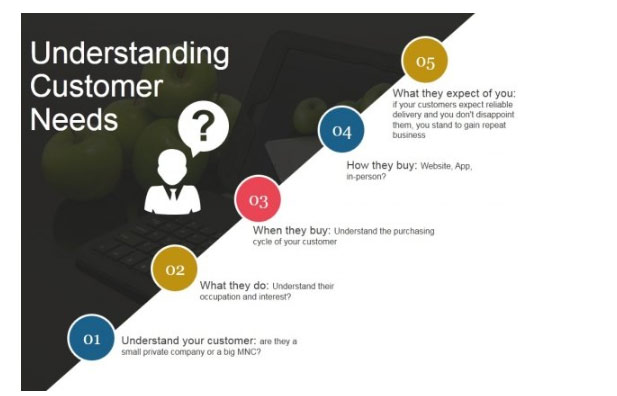Importance of Handling Customer Complaints in a Business
- April 21, 2020
- 15 mins read
- Listen

Every business has to be customer-centric to sustain in the competitive market. In this case, handling the customer complaints is one of the best practices. Investing in customer support will help businesses to understand their complaints and improve their services and experience.
There is always a silver lining to the customer complaints. Smart businesses recognize the importance of customer complaints and consider it a golden business opportunity. However, complaints are inevitable, no matter how hard you work or how great your products are, no business can satisfy its customers all the time.
Research by American Express says that “78% of customers have given up on a transaction because of a negative customer experience”
The best way to ensure your business growth is to know what your customer complaints are and treat them as highly valuable feedback to instill in the customer service strategy to improve your brand experience.
Let’s discuss the importance of handling customer complaints and some of the best practices for handling the customer complaints in a strategic way.
What are Customer Complaints?
Customer complaints can be defined as the gaps between what a business promises in terms of the product or services and what customers get. It is a mismatch between how customers perceive the brand and where they fail to get the desired customer service experience.
There could be different types of customer complaints. It could be related to a) improper communication, b) internal processes or c) poor quality of service. Realizing that a complaint is an opportunity makes it easier to turn conflict into positive change. Customer complaints can tell you how to resolve issues – if you listen to them carefully.
You should be thankful to your customers for sharing their opinions and complaints. It helps to understand the challenges customers are facing with your products and services. They are very valuable to your business because not only do they help you gauge the level of consumer perception but also unveil so many unexpected opportunities for growth.
Importance of Handling Customer Complaints in Business
Complaints give a first-hand perspective of how your customers feel. Instead of doing expensive market research or running a feedback survey, customer complaints are actually the real feedback that you can get if you address them carefully and implement those changes. By realizing the importance of customer complaints, evaluating business areas becomes direct and easy.
Let us discuss a few reasons why customer complaints are important for your business growth.
1. Complaints are a Reality Check for Your Business
“Why are customer complaints good for your business?” – The answer is quite simple.
Generally, customers do not prefer doing business with that company again after one negative experience.”
It is critical to pay maximum attention to customer complaints. Businesses that don’t define their objectives get stuck without solid goals and customer complaints can help to identify ways to take businesses to the next level. It acts as a reality check for businesses and helps them to plan strategies for growth and development.
Troubleshooting the complaints by evaluating the concerns helps to improve your business as well as the customer experience.
Here is how customer complaints can benefit your business.
- Help to identify the loopholes in service delivery.
- Gain insights about customers’ perceptions of your brand.
- Learn about the most desirable features and how you can build better products.
Acting on customer complaints regularly helps to deliver a consistent support experience and it also makes every business department accountable to resolve them.
2. Help to Understand Customers Better
Knowing and understanding customer needs is the focal point of every successful business. The more you know about your customers, the more effective will be your sales and marketing efforts. Making the effort helps to gain insights into your products and services.
Once you have the knowledge of the benefits and drawbacks, it can be used to persuade potential and existing customers that your brand is the best for their interests.
Understanding customers can be vital for the following reasons:
- Gain insights on who they are, what their interests are, and what they think about you that can help you to structure your approach to meet their expectations.
- Learn their psychology and use it to improve your products and services.
- The easier you make things for your customers, the more likely they are to retain your brand over others.

No matter if your customers reach out to you with minor or major concerns, you should ignore them. Rather you should apply it to match the wavelength of the customers with your brand. Handling the challenges properly will help customers feel that brands value their complaints.
3. Get First-Hand Feedback about Your Product Offerings
When customers have a bad experience with your brand, they might not tell you, but certainly share with their friends and colleagues. Harvard Business Review found that the act of just asking for customer feedback is enough to keep customers from churning and coming back for more.
Acquiring first-hand customer feedback opens growth opportunities for businesses. Encouraging customers to complain and share their opinions is an easy way to share their genuine feedback. It is one good reason why customer complaints are important.
Here are the key reasons why customer complaints or feedback are good for your business?
- Points out important aspects that need improvement – It is vital to understand what suits better to your customers. Feedbacks help you to know if your product is close to what they desire. When you show that you are listening to them, brand credibility improves.
- Customer complaints can be used to sell products – Unhappy customers who provide feedback should be seen as a chance. When they contact you and share the bad experience, expecting you to do something about it, give priority to the feedback.
- Listening to customers makes them feel valued – A good way to show your customers that they are important is by asking for their opinion and acting accordingly. When the customers feel listened to, they start having positive connotations with your brand and share their good experiences with you.
- Genuine feedback generates recommendations – Forbes’s study revealed that personal recommendations are the top motivation for purchase decisions. It generally comes from friends or family and can be even more convincing.
4. Improve Your Online Reputation
Podium survey found that 93% of consumers are influenced to purchase by online reviews. This is why marketers give more importance to online reputation and reviews. What customers say about your brand online directly impacts your bottom line.
Managing your brand reputation online is not about removing negative reviews and complaints from social channels. It is all about being active 24×7, putting in the right efforts to reduce negative reviews while keeping the customers satisfied at the same time.
Quick tips to manage online reputation:
- Respond to online reviews and customer complaints as quickly as possible.
- Maintain a polite tone while conversing with the customers.
- Never take the reviews personally while dealing with them.
- Apologize. A sincere apology can diffuse the situation and may gain a loyal customer.
- Gain insights to understand your brand’s performance and your target audience better.
Wine Country Tour Shuttle serves as a good example to handle angry customers with polite responses. You can see how fantastically the manager responded to the customer’s complaint.

By taking timely actions to an angry customer, your response can appease the direct customer as well as other customers who might read these complaints and assess your competence to handle tough queries.
Takeaways:
- You should monitor your brand mentions regularly to understand what customers are talking about you.
- Be prompt in addressing the negative reviews so that it does not connect to the bad word of mouth.
- If a customer is really angry for a genuine reason, once you fix it, you can incentivize them to compensate.
5. Improve Your Customer Support
Why do customers complain so much?
Maybe due to reactive support channels, the response may be delayed, and multiple customer touchpoints or interactions are needed to resolve a complaint. If you forget to respond to customer queries on time, don’t forget to use these sorry for the late response phrases to deal with customers better.
Sometimes customers complain because their “frame of reference” does not necessarily line up with the product or service that is offered. If your support team does not have the proper skill set, the process is inadequate, or your team is not equipped with the right tools.
If you are not able to handle your conversations on time and effectively, then you can implement the right tools such as:
- Live chat – You can implement live chat to deliver instant assistance to customers’ complaints related to sales or support, and improve satisfaction. Make sure your agents are well-trained on how to deal with angry customers and to diffuse situations.
- Real time engagement tools – Tools like co-browsing and video chat help to connect with customers in real time to identify customer problems faster and deliver effective solutions.
- Chatbot – You can automate your sales and support with chatbots to engage customers 24×7. Responding to customers’ issues instantly delivers a better experience.
REVE Chat is one such AI-powered omnichannel platform with digital customer engagements tools that helps to address customer complaints faster. It allows companies to offer real-time assistance on websites, mobile apps, and other social media platforms like Facebook, Instagram, Telegram, Viber, and WhatsApp.
6. Enhance Customer Communication
McKinsey report says 70% of the customer’s journey is dictated by how the customer feels they are being treated. Generally, customers move to other brands because they are put off by an untrained or rude support team. Effective communication plays a vital role in resolving customer complaints.
When customers make a complaint, it is a hidden opportunity for your business to improve, which is why customer complaints are good for business. When customers see you listening and taking their feedback into account, they appreciate that their voice is heard.
Practice healthy responses for resolving customer complaints:
- Listen to your customers – Listen to what your customers are complaining about. You have to identify the reason why they are complaining. Customers expect faster responses and listening helps to understand them and answer them quickly.
- Find an effective solution – Empower your customer support team to respond to customer complaints by preventing them from transferring them to senior managers.
- Follow up with the customers – After offering solutions you can follow up with your customers to make sure they are happy with the resolution or not. Following up shows that you care for your customers.
- Meet and exceed customer expectations – Never miss out on a chance to meet or exceed your customer expectations, even in situations where you intend to say no to customers. You can send a thank you or provide early access to new features.
- Apologize to your customers – You can calm down a frowning customer with a sincere apology. Always say sorry for your mistake if you delay acknowledging or resolving the customer complaint.
7. Build Customer Loyalty
“Our greatest assets are our customers. Treat each customer as if they are the only one.”
Thus, every customer complaint impacts businesses. Whether it is about a product or service is positive or negative, the business is impacted by it. A satisfied customer may share their experience with limited friends, while a dissatisfied customer may get on social media and share their experience with thousands of followers.
Resolving negative comments is vital but how to respond to customer complaints?
- Acknowledge the issue and let your customers know that you are looking into the matter.
- Provide an estimated timeline and follow-up action.
- If the customer is happy in the end, you can ask them to share their positive feedback.
By responding to your customer complaints in a timely manner, you can make them feel valued and happy. Effectively handling customer complaints is important as it is a make-or-break point for customer loyalty.
How to Analyze Customer Complaints?
When you are running a business, you have to handle customer complaints. However, how you address and analyze these complaints can make all the difference in customer retention and improving your services. These complaints serve as valuable opportunities to gain insights into areas where your business may need improvement. By carefully analyzing customer feedback, you can identify root causes and implement solutions that not only resolve issues but also enhance the overall customer experience. Here are some tips for you!
1. Collecting Customer Feedback
Collecting customer complaint data is the first and most crucial step in the analysis process. It involves gathering customer feedback from all relevant sources to ensure no valuable information is missed. You can collect customer data from:
- Emails
- Phone calls
- Social media platforms
- Websites
- Mobile apps
- Live chat etc
2. Organize Feedback into Categories
Categorizing customer feedback is a great technique to understand how your business is performing. You can sort out the feedback into different categories, such as product quality, pricing, customer service, delivery issues, or website usability. Later you can find out which areas are performing better or getting criticized.
This process helps you to find out the bottlenecks and highlight the newest trends and patterns. Additionally, categorization allows you to uncover smaller operational issues that might otherwise.
3. Finding Out the Underlying Causes
It refers to the process of identifying the root causes behind a particular issue or customer complaint. You need to analyze different data, feedback, and performance metrics to uncover the root problems for customer dissatisfaction, employee performance, or operational inefficiencies. By evaluating these causes, organizations can make informed decisions, implement effective solutions, and improve processes to enhance overall outcomes.
4. Set a Plan for Action
Once you have gathered and analyzed all the negative customer feedback, it’s time to create a plan of action. This strategy must be feasible and practical, keeping the organization’s resources and constraints in mind. Here are some tips for you!
- Clearly define the objective, or what you aim to achieve
- Identify the tasks or steps required to reach the goal
- Assign responsibilities to specific departments
- Set timeframes for each task to be completed
- Set the necessary resources on the overall budget, tools, or technology
5. Involve Cross-Functional Teams
Next, summarize the complaint data and analysis into reports for decision-makers and share that with all other concerned teams. Highlight key issues, trends, and areas for improvement. Also, suggest actionable steps to resolve complaints and prevent future issues.
6. Monitor And Follow-Up
Lastly, evaluate and monitor how effectively the complaints are being resolved over time. You should look into the below-mentioned pointers:
- Are there improvements in the areas where issues were reported by customers?
- Follow up with customers who filed complaints to ensure their concerns have been addressed.
- Ask if they are satisfied with the outcome and if there is anything else you can do to improve their experience.
- Depending on the severity of the issue, you can also offer a small gesture of goodwill, such as a discount or a free service.
Best Practices for Responding to Customer Complaints
No matter how big or small a customer complaint is, the way a business responds to it determines whether a customer remains loyal or moves to other brands for business. By adopting an empathetic approach and addressing complaints quickly and professionally, companies can handle customer complaints efficiently. Here are some best practices to look into!
Acknowledge the Complaint Immediately
Respond to a complaint as soon as possible to show that your company is always available to assist whenever customers face any issue. Your customers should feel that their concerns are important and valued.
Active Listening
When a customer expresses his problems, listen attentively without interrupting. Such a kind gesture shows empathy and understanding. If required, you can also ask questions to ensure that you have fully understood his challenges. It will help you to find out a solution more easily without any sort of confusion.
Be Empathetic
The best way to support a dissatisfied customer is by showing empathy and understanding his/her emotions. Empathy is a key skill in customer service that every agent should cultivate. By putting themselves in the customer’s shoes and grasping their concerns, agents can quickly ease the situation and provide an effective solution.
Provide Solutions
Depending on the complaint, provide possible solutions and let the customer choose which option they prefer. This empowers them and can lead to greater satisfaction. Ensure that your proposed solutions are easy to understand. Avoid technical jargon that may confuse the customer.
Regular Training for the Team
Ensure that all customer-facing employees are trained in effective complaint handling. This includes communication skills, product knowledge, and conflict-resolution techniques. The more they are trained, the better they will perform.
Learn and Improve
Use customer complaints as learning opportunities. Complaints are the reflection of what customers feel and think about your brand and its services. So take these positively and work hard to improve your products, services, and customer experience.
Concluding Words
Customer complaints are unavoidable, and how you address them can significantly impact your success. It’s important to shift your mindset and see complaints as valuable opportunities. As mentioned before also, complaints can drive meaningful improvements for your business. By understanding their benefits, you not only enhance your brand’s reputation but also boost your team’s productivity.
With REVE Chat, you can provide real-time support across your website, mobile apps, and social media platforms. Your agents can efficiently manage customer complaints, helping to retain more customers and drive growth. From real-time assistance to automating various business operations, REVE Chat is a comprehensive omnichannel customer engagement tool designed to keep your customers satisfied. Ready to give it a try? SIGN UP today!
Frequently Asked Questions
There is not just one common complaint; there are several. But the most frequent ones are slow customer service, long waiting times, billing errors and poor product or service quality.
You need to deal with customer complaints effectively to retain customer trust and happiness. Here are some tips for you! Acknowledge the complaint, Apologize sincerely, Active listening, Be empathetic, Ask questions for better clarification, Offer a solution, and Follow-up.
To be a good customer support agent, one must excel in the following qualities: Communication skills, Problem-solving capabilities, Empathy, Product knowledge, Patience.
Customer complaints provide insights into the performance of your products and services and reflect customers’ perceptions of your brand. You can leverage these complaints to: Identify recurring issues, Make necessary changes that enhance the overall customer experience, Strengthen customer loyalty, Improve agent efficiency, Highlight gaps in communication, Get valuable insights into what customers want.
Customer complaints can vary widely—some are easy to resolve, while others may be more challenging. In general, it’s important to stay calm and composed. Listen carefully and avoid becoming defensive. Concentrating on finding a solution and expressing empathy will always help to sort things out.




